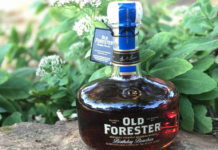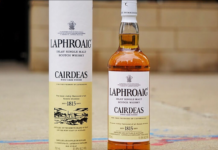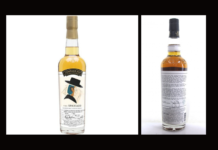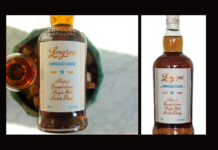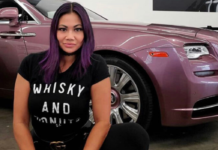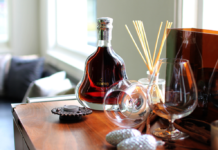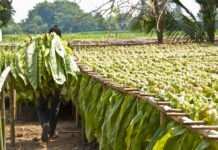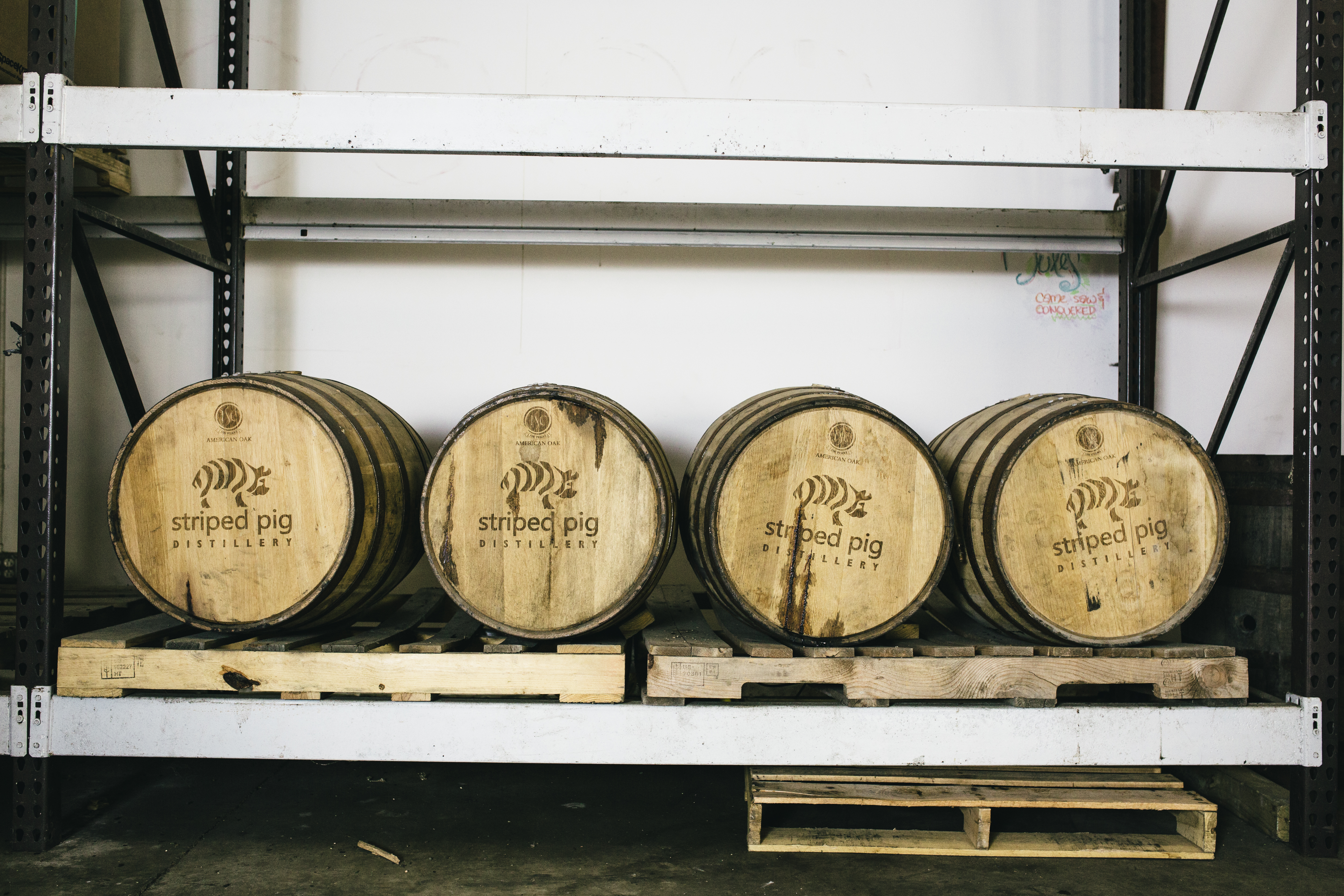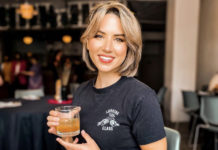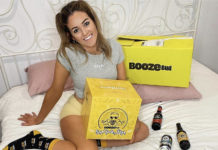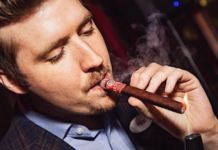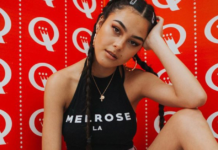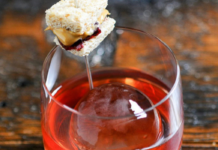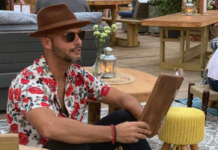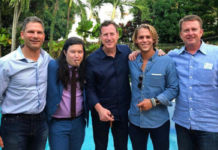The Striped Pig Distillery is Charleston’s first distillery since Prohibition. Striped Pig opened in Charleston, SC summer 2013! Our small craft distillery brings premium, handcrafted spirits to the Lowcountry and throughout South Carolina. Tastethedram spoke to the head distiller and co-founder of the distillery Striped Pig, Johnny Pieper.
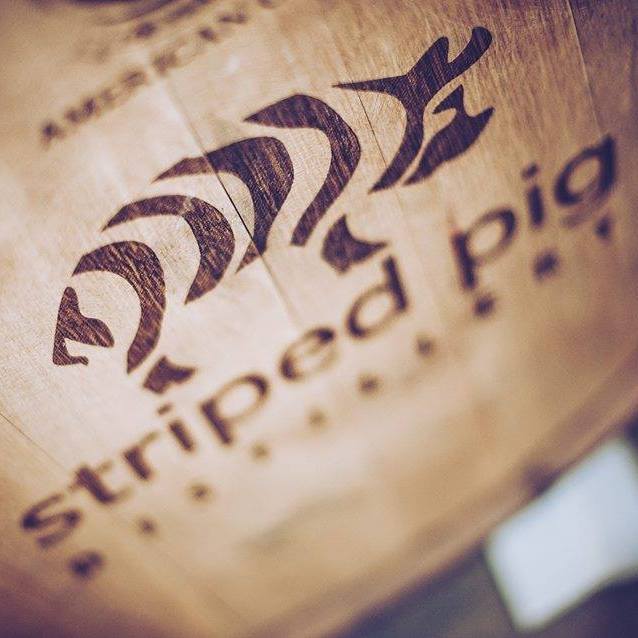 Johnny tell us a bit about yourself. How did you find yourself in the world of whiskey?
Johnny tell us a bit about yourself. How did you find yourself in the world of whiskey?
JP: After I graduated from the College of Charleston, it was time to utilize my new fancy business degree. But, in 2007, no one was hiring and the economy was not getting any better. My path in distillation was started by fate and an article in the Charleston City Paper. While taking a lunch break at my current employer I read an article that was making light of the fact that Charleston consumed more liquor per capita than any other city in America. The TTB makes annual reports on taxes paid for consumption in various industries. Sprits being one of those reported at the end of the year. Like every other young entrepreneur, I always had my ears out for a good idea. And if your town consumes the most of something, then why not find a way to do just that?
At the time there were no other distilleries crafting spirits in Charleston. This was a great opportunity for me and it came at the right time in my life. I wanted to start my own business while also being able to express my creativity. That is when my research began. I needed to know how to craft spirits at a professional level, and more importantly, how to run a distillery. Hands on experience would be crucial to moving forward. I had a lot of family and friends in Denver so began my search for distilleries there. I was one of the lucky few to have a top-notch distillery actually teach me the ropes. Downslope Distilling allowed me to work underneath their very talented distillers and business owners. This was my introduction into the world of making spirits.
Please tell me how the distillery came about? What was the vision. Tell us about the name.
JP: While I was studying in Colorado, one of my partners, Todd Weiss, was working at starting a distillery in Charleston too. His focus was on rum and I head about him while I was still out west. I reached out and we made plans to meet when I got back to Charleston. When previously in Charleston, I worked for Boris Van Dyck who owned Icebox, a beverage catering service. He knew my plans so he became more and more interested in the idea over time, too. One of our previous partners and I had worked together in another business before I left as well and he wanted in, so him and Boris were who I was originally working with. After meeting with Todd, the four of us combined our ideas and plans. Jim Craig, another one of our partners found us through an ad we posted on craigslist looking for an old still. He had just sold his company and was interested in distilling and wanted to know what we were up to. Before we opened I knew we need someone to handle marketing and events so we found a recent college grad from Alabama who is now a partner too. Four years later and Todd, Jim, Boris, Jules and I are more like a family than anything, just working every day to keep our passion going. The vision is to make good, clean booze using local resources and highlighting traditional distilling techniques while also working to innovate new ideas and flavor profiles.
Todd had the idea for the name for the distillery from researching a lot of history surrounding distillation in America. Well, the short story of the Striped Pig comes from the Temperance movement which outlawed liquor stores selling under 15 gallons. This put a lot of small liquor stores out of business. One of these business owners came up with an idea to advertise a “magical striped pig” under a tent at militia musters, basically drill shows in the streets. For a few pence, you could pay to come in and see the striped pig and were given a free glass of rum in return.
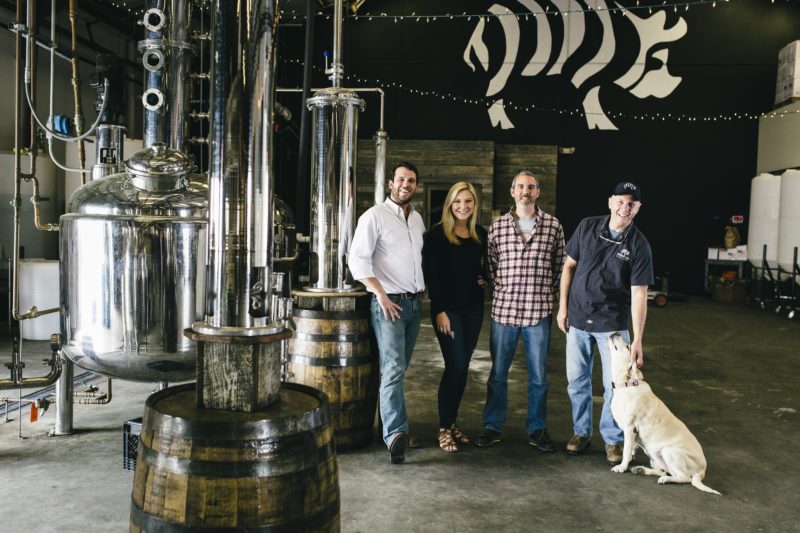 (Photo Credit: Nickie Cutrona)
(Photo Credit: Nickie Cutrona)
What challenges (if any) did you come across when first starting out? What advice can you give to others looking to get into this business?
JP: There are no businesses that can start without challenges. Distillation does have its own individual hurdles that make it particularly difficult. Getting your permits (DSP) to get started can, and most likely will, take up to a year to get. While getting through the red tape you will have to pay the rent in your commercial building. This is because the DSP is awarded to a commercial address not a person. Making operating capital is problem number one. Let me out it this way: if you pay $6,000 a month in rent, then you could spend up to $72,000 before you can even distill a drop. That is a lot to pay to figure out that you don’t know how to make good booze.
Another challenge is the act of making spirits. It is not legal to distill at your home anywhere in the world except New Zealand. This does not allow distillers to hone their craft before getting a business started. Most all breweries have been started by individuals that have been brewing for decades in their own backyards. Now, I am sure that the occasional person does distill at home before starting. Making spirits is a lot like playing a harmonica. Anyone can play a note, but it nearly impossible to master. Perfecting this craft takes time. Will you have the persistence, passion, man hours, and money to get you through that time period?
What exactly does your job entail?
JP: My job entails many different things. Are you a jack-of-all trades? You will need to be. As one of the owners I have many feathers in my hat. Jobs like mashing raw ingredients, operating the still, doing tours, constant sales, promoting the business, cleaning the facility, and most importantly cleaning the poop out of the yard from the distillery dog are all my jobs. No task is too small or big. There are hundreds of man hours needed to run a small business, especially one like this. You will either need multiple business partners, or multiple employees. We’re lucky to have a team of partners that all work equally as hard day in and day out. As to what my job entails when I am running a still, well that is simply listening. Once you learn your equipment, you will begin to know its noises and ticks. As the head distiller your job is to fix problems. That comes over time and with experience. Like a good whiskey you simply can’t fake age. I’ve been doing this for a bit, but I know I still have so much more to learn, that’s what gets me going every day.
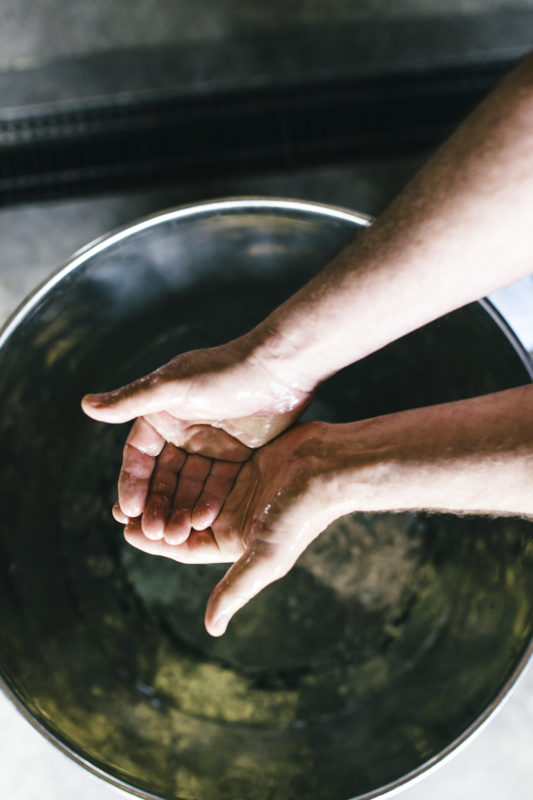 (Photo Credit: Nickie Cutrona)
(Photo Credit: Nickie Cutrona)
What whiskey expressions do you currently produce:
JP: We have three different whiskeys that we are working on. We have a white dog product that we refer to as our, “Striped Shine.” This is our un-aged bourbon, and it is a very clean 120 proof pure corn liquor. Next is our bourbon. We are still aging this product and we anticipate its release in the next year. The third is a newer project that we are very excited about. “Striped Rye Whiskey,” is going to be a beautiful expression that shows the quality of local rye as well as the softness that Striped Pig spirits are becoming known for. More on that later!
What attributes would you say are most important for a master distiller to possess?
JP: Not calling yourself a “Master.” I know and or at least met the biggest players in the game. The best distillers in this country all have the same opinion on the idea of a master distiller. There is no such thing. Head distiller is a title that one can take when in charge of a distillation program. It takes decades to master any craft. And those that have been head distillers for half a century will tell you that there is always so much more to learn and that no one person can master it. So as for attributes… put your head down and make good Whiskey. What you put on your business card will not make your booze any better.
Do you think that your product is distinctive? If so, what makes it distinctive from other whiskies on the market?
JP: I believe that our whiskey is distinctive. All of our spirits are to us because that’s what we aim to do. The raw material seed was selected by use and is grown very close by. We have had complete control over every stage in the process. We are a true grain to glass distillery. When you start with high end raw products you will end up with superior products. We make our spirits in an old fashioned way and we don’t cut any corners. We believe that makes us distinctive from many of the produced whiskeys being packaged in the US.
Is there a flavor profile that you aim to achieve when distilling? Do you select casks to achieve this flavor profile?
JP: The corn that we have grown for use will have its own distinct flavor. I can use different finishing barrels to push the spirit into a predetermined profile, but, we are aiming to let the corn speak for itself. We even use a medium charged American Oak barrel so we don’t mask the earthy sweet taste too much.
Craft distilling has become incredibly huge – as there’s still no official definition, how would you define “craft” and do you think Striped Pig Distillery fits into this category?
JP: In my opinion the word, ‘“craft” is a balance between the amount of spirit that is made in a year, and how much hands on attention each bottle gets. Selling under ten thousand cases a year means you are a micro distillery, but not necessarily a craft product. Also, I think the level of creativity plays a role in being craft. I believe we are craft because we are trying to make unique spirits unlike another brand and constantly trying new variations of old world tastes, pushing on what is the norm. To me, if you are making a difference in the distillation world and not just making booze, than you are a craft brand.
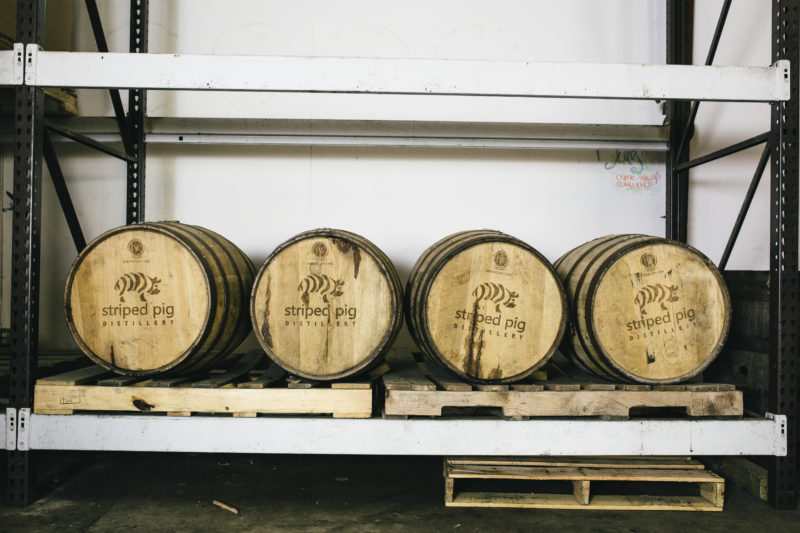 (Photo Credit: Nickie Cutrona)
(Photo Credit: Nickie Cutrona)
Do you have any role models in this industry?
JP: I do have a couple of role models that I have had the privilege to work around and get to know. The first being Mitch Abate, head distiller of Downslope Distilling. Everything I know I learned from him. He is a true devote of the craft, I am lucky to call him my mentor. Eddie Russell is another role model of mine. As the head distiller of Wild Turkey, he is truly making a difference in the world of Whiskey. It has been an honor to get to speak with him every time I get the chance. He is so interesting and a great guy to have a Whiskey with. Between him and his father, Jimmy Russell, they share just under a 100 years as head distillers, and both are great Americans.
How do you expand your whiskey nationally? Any plans to do so?
JP: By making a whole bunch of it and making the distributor connections to sell it. That takes a long time and a lot of money to get to that point. Yes, we have every intension to sell our Whiskey and other products nationally. We really want to saturate our local market first though. Be something that Charleston and South Carolina know all about and are proud of to call their own.
Do you believe now is the most exciting time for a whiskey lover?
JP: Now is a good and bad time for Whiskey lovers. It is a good time because there are a lot of new and innovative brands that are coming out. The Orphan Barrel program is a perfect example. At the same time it is a bad time to be a Whiskey lover. The increasing demand is inflating the price. Getting your hands on some the finer Whiskeys is becoming harder and harder.
Anything else you’d like to share with our readers?
JP: Support your local Whiskeys and distilleries, whatever they may make!





